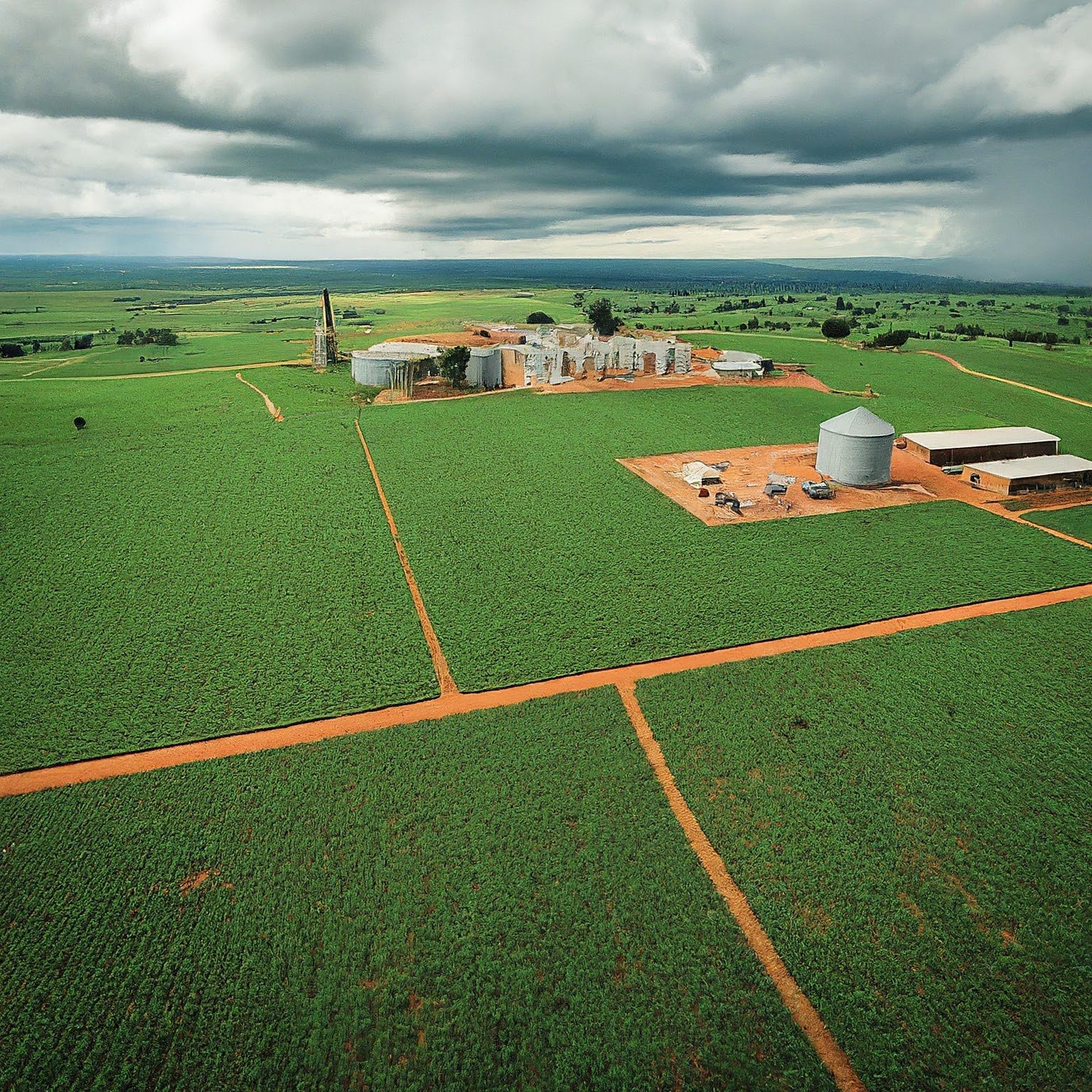Malawi in Southeast Africa launched the “Mega-Farms” initiative in 2023. This program aims to boost agricultural production through large-scale, mechanized farming operations. These large-scale commercial operations have sparked both excitement and concern within the country. This article delves into the phenomenon of mega-farms in Malawi, exploring the opportunities they present for the country’s agricultural sector and broader development goals.
The Growth of Mega-Farms:
Mega-farms in Malawi typically involve the cultivation of cash crops such as tobacco, sugarcane, and maize on a large scale. These operations often span hundreds or even thousands of hectares, dwarfing the size of traditional smallholder farms. The influx of foreign investment and the availability of arable land at relatively low prices have fueled the rapid expansion of mega-farms in the country, particularly in regions with favorable agro-climatic conditions.
Opportunities and Benefits:
Proponents of mega-farms argue that they bring significant benefits to Malawi’s agricultural sector and economy. By harnessing economies of scale and modern agricultural practices, mega-farms have the potential to boost productivity, increase agricultural exports, and generate much-needed revenue for the country. Moreover, the establishment of large-scale commercial operations can create employment opportunities for local communities, both on the farms themselves and in related industries such as processing and transportation.
Proponents of the program highlight several potential benefits:
- Increased Food Production: Mega-farms can cultivate vast areas of land, potentially leading to significant increases in crop yields. This could help Malawi achieve self-sufficiency in food production and even become a net exporter.
- Modernization and Technology: The initiative encourages the use of modern farming techniques and technologies, such as advanced machinery and irrigation systems. This could improve efficiency and productivity compared to traditional methods used by smallholder farmers.
- Economic Growth: Mega-farms are expected to create new jobs in agriculture and related sectors. Additionally, increased production could lead to higher export earnings, boosting the Malawian economy.
Balancing Prosperity and Sustainability:
As Malawi navigates the complex dynamics of mega-farm development, finding a balance between agricultural prosperity and environmental sustainability will be crucial. Policymakers must ensure that investments in large-scale agriculture are accompanied by robust safeguards to protect land rights, promote sustainable land management practices, and foster inclusive economic growth. This may involve strengthening land tenure systems, promoting agroecological approaches to farming, and investing in infrastructure and support services for smallholder farmers.
The Road Ahead
The success of the Mega-Farms program hinges on addressing these concerns. The Malawian government must prioritize:
- Supporting Smallholder Farmers: Mega-farms should ideally complement, not replace, smallholder agriculture. Programs are needed to provide smallholders with access to training, resources, and markets to integrate them into the agricultural value chain.
- Sustainable Practices: Environmental impact assessments and regulations are essential to ensure mega-farms adopt sustainable practices that protect soil health, water resources, and biodiversity.
- Community Engagement: Open communication and collaboration with local communities throughout the planning and implementation process can help address concerns and build trust.
Conclusion:
The emergence of mega-farms in Malawi represents both an opportunity and a challenge for the country’s agricultural sector and broader development aspirations. While these large-scale commercial operations hold the promise of increased productivity, economic growth, and job creation, they also raise important questions about land rights, environmental sustainability, and social equity. By adopting a balanced and inclusive approach to agricultural development, Malawi can harness the potential of mega-farms while safeguarding the rights and well-being of its smallholder farmers and the environment.



